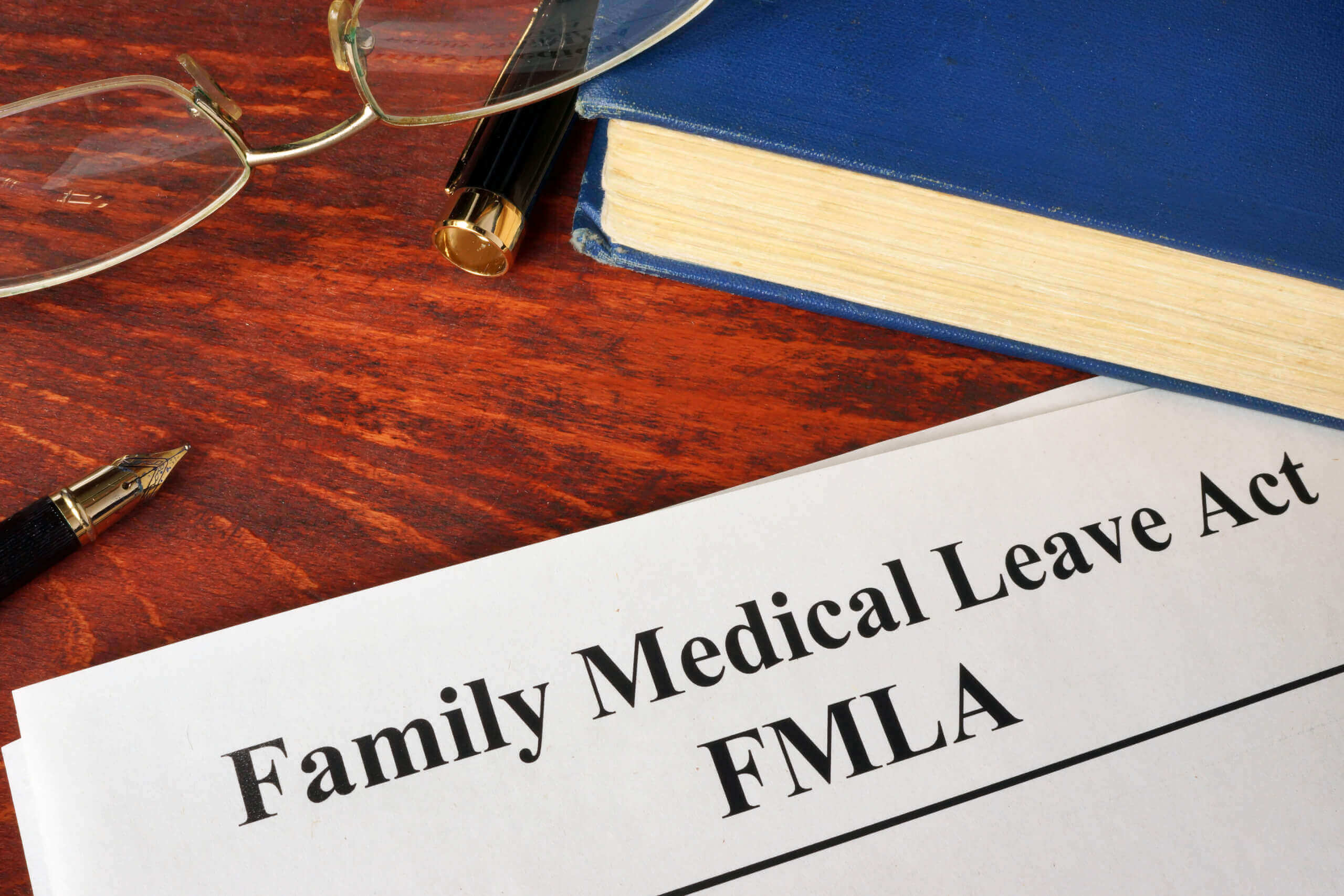Complimentary Phone Consult with an Attorney Today
New Employment Cases 334-237-7773The Family Medical Leave Act (FMLA) of 1993 gives employees who work for companies with more than 50 employees working within a 75-mile radius of each other the right to medical leave. They may take up to 12 weeks of unpaid leave during a 12-month period. Time off under the FMLA can be used to give birth to a child, provide care for a seriously ill loved one, or a similar circumstance. If an employer refuses a qualifying employee leave under FMLA, the employee may be entitled to sue for damages.
For years, the employment law attorneys at Barrett & Farahany have been zealous advocates for employees who have been discriminated against and/or have had their rights violated by their employers. Our attorneys have extensive knowledge of this area of law.

In fact, our FMLA attorneys have a successful track record for cases like these, having received numerous favorable rulings from both state and federal courts. They understand the frustration workers face when they are not granted the time off they need and deserve under the FMLA. We work closely with our clients to ensure that they receive appropriate legal relief and that their employers are held fully accountable for their gross violations. If you believe your employer has violated your rights as an employee, contact our medical leave attorneys immediately.
Can Your Employer Deny You FMLA Leave?
Employers can be in violation of the federal Family Medical Leave Act by denying leave to an employee who is qualified under the FMLA, violating the FMLA while an employee is on medical leave, or causing the employee trouble getting their job back when the leave is over.
Employers use many common excuses for wrongfully denying leave under the FMLA. Some of the most common include:
Unnecessary Notification Requirements:
For most medical leave requests, you are required to give advance notice. However, if you have an emergency situation, you are only required to give as much notice as is practical under the circumstances. For example, a family member’s medical emergency is not something you can notify your employer of ahead of time. Many employers violate the FMLA by requiring more notice than is necessary. Another way they may violate the FMLA is by requiring that you ask specifically for “family medical leave.” As long as your employer was reasonably informed that your leave is for pregnancy, care for a loved one, or a similar circumstance, it is their job to know that you are covered by the Family Medical Leave Act.
Miscalculating an Employee’s Eligibility for Time Off:
Employees are entitled to unpaid family leave if they have been employed for a period of at least 12 months and have worked at least 1,250 hours prior to the date the requested leave begins. Some employers wrongly believe that you must have worked at least 1,250 hours prior to the date you request the leave, and deny the request based on this false belief. As long as you have worked 12 months and 1,250 hours before your medical leave, your employer is legally required to give it to you.
Pressuring the Employee to Not Request Leave:
Any type of pressure, either blatant or subtle, to discourage an employee from taking the leave they are eligible for under the Act is an FMLA violation. For example, an employer may “suggest” that you wait several months until things are not as busy, or they may imply that taking leave might adversely affect your chances of an upcoming promotion. You have the right to take leave without penalty. This means it should not be counted against you when it comes to future promotions, raises, or bonuses you would otherwise be eligible for.

FMLA Violations While on Leave
After you have been granted family medical leave, you may run into problems due to the actions of your employer. For example, you have the right to keep your group health insurance benefits while you are on leave, as long as you keep paying your required portion of the premiums.
However, since most employers grant the leave unpaid, the employee is usually responsible to pay the premiums directly. This is because there is no paycheck from which the employer can deduct payments.
Your employer is required to give you advance written notice of how and when to make payments, and they cannot cut off benefits unless your premium payment is more than 30 days late and they have given you plenty of advance notice to make payment arrangements. If they do not give you this warning and cut you off from your benefits, this is an FMLA violation.
Trouble Returning to Work
One of the most common ways employers violate the FMLA is by making it difficult or impossible for you to return to work once your leave is over. An employer may not harass you, retaliate against you, discipline you, or terminate your employment for taking family medical leave. These are clear violations of the Act, but there are some more subtle ways employers may give you problems when your leave is over:
Return-to-Work Delays:
An employee only needs to provide two days of notice before they return to work. As long as this notice is provided, the employer is required to give you your job back right away. Even if it is a slow period and/or it is not an ideal time for the employer to add more staff, they must still allow you to come back. If the original position is no longer available, they must be placed in an equivalent or superior position, except in some extreme financial circumstances.
Failure to Restore Benefits:
An employee is only allowed to keep their group health insurance while away on family medical leave. As soon as the employee is reinstated, the other group benefits must be reinstated as well. This must be done without delay and without having to go through any qualifying process.
Reassigning the Employee to a New Position:
When you return from your family medical leave, you are supposed to be given your old job back or a job that is nearly identical in pay, benefits, and job description. There are exceptions made in extreme circumstances if no position currently exists for any employee with the business. An employer may not, for example, place you in a job that is significantly different from your old job while giving your old job to someone else but may change your position if dire circumstances caused your department to be shuttered while you were on leave.
Wrongly Classifying You as a “Key Employee”:
There is a loophole under the FMLA that allows employers to deny reinstatement of a previous job to key employees. These are defined as salaried employees whose pay is in the top 10% of all company employees within a 75-mile radius. This can only be done if reinstating them to their previous position presents a “substantial and grievous” economic hardship to the employer. Employers will often try to broadly interpret this rule to wrongly include employees that do not meet the definition of a key employee.
Contact the Medical Leave Attorneys at Barrett & Farahany to Take Legal Action
If you believe your rights as an employee have been violated under the Family Medical Leave Act, you can sue your employer privately. If you choose to file a lawsuit, it must be initiated within two years of the alleged violation, or within three years if the alleged violation was malicious.
If you need help deciding what is your best option, it is best to speak with a seasoned employment rights lawyer as soon as possible. The medical leave attorneys at Barrett and Farahany have several years of experience helping victims of FMLA violations receive justice. We can review your options to help determine the right course of action.
For a personalized consultation with our attorneys, contact our office today at
(205) 564-9005.Talk To An
Attorney Today
By providing a telephone number, e-mail address, and submitting this form, you are consenting to be contacted by e-mail & SMS text message. Message & data rates may apply. You can reply STOP to opt-out of further messaging.

